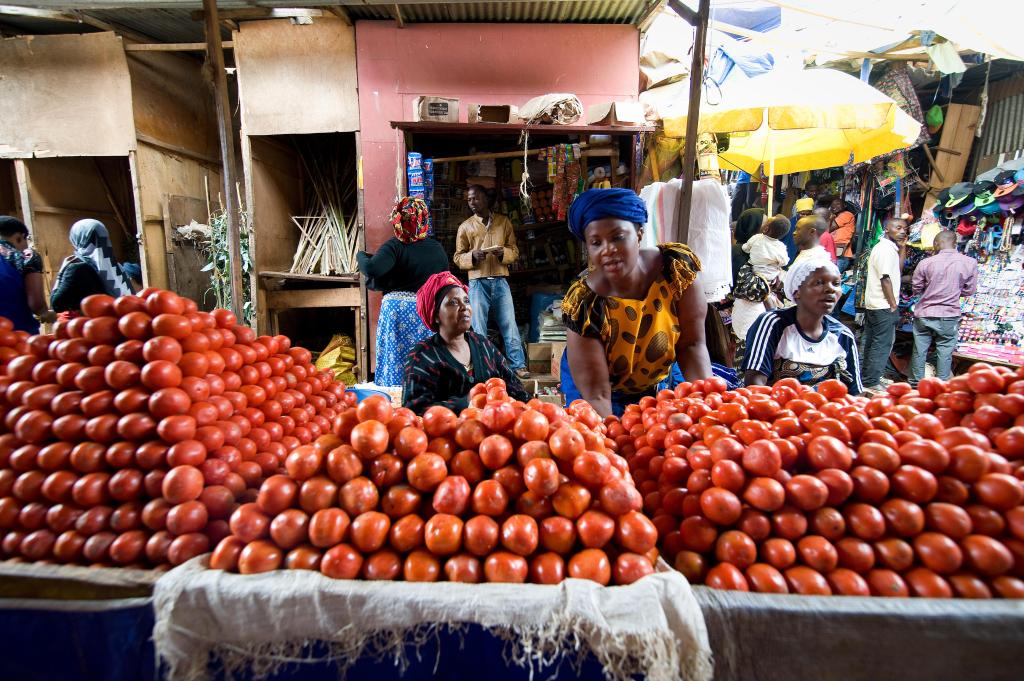Well before COVID-19 hit, more than half of sub-Saharan Africa struggled to afford a healthy diet. But since the beginning of the pandemic there has been a spike in food insecurity across the continent, up by 135 percent in West and Central Africa, and 90 percent in Southern Africa.
Around 80 percent of the food consumed on the continent is domestic – produced and distributed, often informally, from within the boundaries of a country, and not imported. Lockdown measures, coupled with social distancing, have put the brakes on this system, limiting formal and informal business transactions, local labor activity and the production and sales of crops and livestock.
Videos by VICE
With crop reduction comes food scarcity, and prices go up with demand. The Famine Early Warning Systems Network found that Ethiopia, Kenya, South Sudan, Sudan, Uganda, Zimbabwe, DRC, Mauritania, Nigeria, Guatemala and Haiti are the countries that have been most affected by the drop in crop production.
In the Republic of Congo, the average price of a basic food basket has increased by 15 percent, while a similar pattern has emerged in Sudan, South Sudan, Ethiopia and Somalia, with an above-average increase in the price of staple foods.
Then there’s the rising cost of sorghum – a drought resistant cereal grain that’s popular across the continent. In July, sorghum prices exceeded the five-year average by 150 to 250 percent in Sudan, 50 to 240 percent in South Sudan, 85 percent in Addis Ababa, Ethiopia, and 20 to 55 percent in Southern Somalia.
It’s not just production that has been affected by lockdown measures, but also the informal trading markets that are a staple of the sub-Saharan African economy, where an estimated 70 percent of the urban poor buy their food.
Heavily enforced lockdowns forced many of these traders to close. In Zimbabwe, police confiscated and destroyed three tons of fresh fruit. In Burkina Faso – and some cities in Kenya and Nigeria – market stalls were destroyed, and authorities failed to arrange any alternative places to buy produce.
In a bid to stop the spread of COVID-19, most African countries continue to implement border controls to prohibit casual migrant labour – a key source of income for many poor households across the continent.
“[A] major impact will be reduced incomes, especially for informal workers and poorer households who suffer most in any decline in economic activity,” Professor Oliver Morrissey, an African policy expert at the University of Nottingham, told VICE News. “Add to this pressure on government budgets, and any social protection or safety nets that do exist will be less effective. The result is that many households have less income. Even if food is available and prices are stable, they will be unable to afford as much as they used to.”
These changes are hitting the most vulnerable the hardest. A spokesperson for the UNHRC told VICE News: “As a result of these challenges, many refugees are resorting to negative coping mechanisms, such as skipping meals or reducing meal portions. More than 80 percent of refugees in South Sudan, for example, are estimated to be resorting to such measures. In some cases, refugees are resorting to begging, transactional sex or early or forced marriages to be able to afford food.”
In Libya, the pain of the nine-year civil war has only been exacerbated by COVID, with staple food prices increasing by an average of 20 percent across the country over the last few months.
This is all happening at a time when weather conditions are getting harder to predict. Across East Africa, below average rainfall is predicted in October and December, with a similar outlook for March to May of next year.
Two consecutive below-average seasons would likely result in rapidly worsening acute food insecurity, causing a rise in crop losses, staple food prices and resource-based conflict, while simultaneously inciting a decline in demand for agricultural labour.
“Looking to the future, we expect the countries where people are already struggling desperately to get enough food every day to be worse hit, particularly if they are dependent on tourism, oil and commodities no longer in demand because of the global economic slowdown,” Jane Howard, spokesperson for the World Food Programme, told VICE News.
“In Africa, think landlocked, import-dependent countries like Malawi or Zimbabwe, or countries with pre-existing conflict and climate change strains on food security, like Burkina Faso or South Sudan. It is also becoming increasingly likely that the pandemic could also have far-reaching implications on stability, security and conflict in many locations.”






